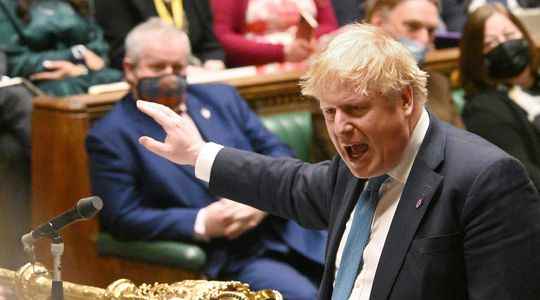Chartered at great expense by the United Kingdom, the first plane supposed to deport seven illegal migrants to Rwanda was ready to take off on Tuesday June 14, when the European Court of Human Rights demanded that the legality of the device must be examined by the British courts. The flight was therefore canceled, angering Boris Johnson, furious to see an external jurisdiction interfering in his national affairs. Determined to enforce at all costs a measure which he considers excellent for curbing illegal immigration to the United Kingdom – this exploded in 2021 with 28,500 arrivals, against 8,466 the previous year – he asked his government to present to Parliament, on Wednesday, a draft law making it possible to override the decisions of the European Court of Human Rights in order to be able to expel, as planned, all illegal migrants to Rwanda.
Supremacy of the Supreme Court over the ECHR
To achieve this, his idea is to reform the Bill of Rights, the national legislation on human rights, by ensuring that the government can ignore the injunctions of the ECHR. While today the law incorporates the European Convention on Human Rights into British law, hence its binding power, the new text would affirm the supremacy of the Supreme Court and the independence of the British courts. The Minister of Justice felt that this bill of rights would reinforce “the proud tradition of freedom”, which led to the choice of the Brexit in 2016. And although the ECHR has nothing to do with the European Union, it too is perceived as too interventionist by the conservative power. The government argues in particular that the national courts had already validated the expulsion process and that a second study is therefore not necessary. However, he assured that the United Kingdom intended to remain a member of the ECHR.
Inside the country, this plan to deport illegal migrants to Rwanda continues to arouse indignation. Prince Charles even came out of the reserve imposed on him by his function to qualify, in private, the idea of “appalling”. On Wednesday, he was also in Rwanda, to participate in a meeting of Commonwealth leaders. He and his wife were received by President Paul Kagame, who welcomed the adoption of this cooperation agreement on April 14, indicating that his country could welcome “tens of thousands of people in coming years”.
In addition to a sum of 144 million euros paid to the country, this decision is in line with the wishes of the president who, according to the specialist in Africa Antoine Glaser, interviewed by L’Express, “wants to ensure that Africans remain on the continent in order to develop it.On Tuesday, Kagame defended his country’s reception capacity, saying that most Rwandans had “lived the experience of being refugees at some point in their lives”. adding, “We know what that means and we’re doing it for the right reasons.”
But several voices, from NGOs to the Anglican Church, which considers this device “immoral”, continue their fight, wondering how a country in which half of the population lives below the poverty line and which, according to Amnesty International, account “a lamentable human rights record”, could welcome with dignity populations fleeing, for the most part, from conflict zones.
